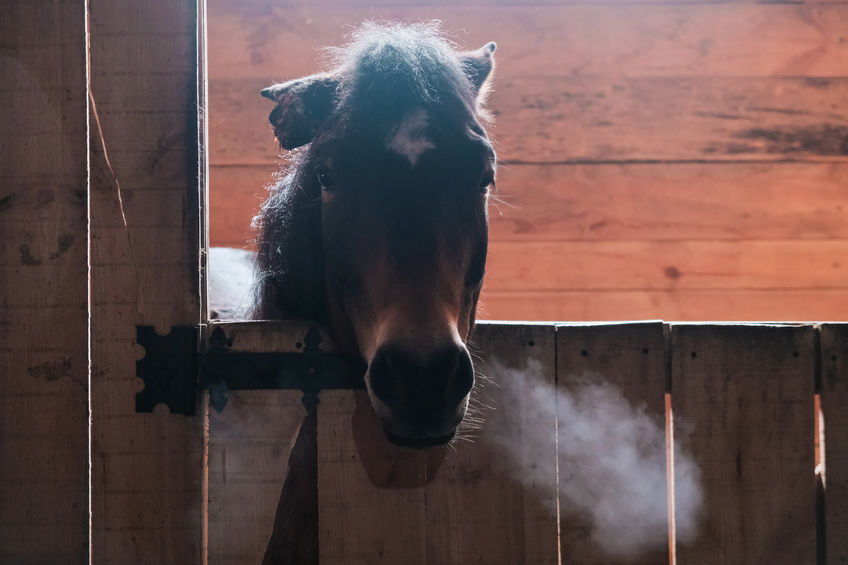 As winter begins to set in and we humans gear up to stay healthy this cold and flu season, horse owners may wonder if their horses can become infected, too. While we can’t pass our colds onto horses, they are susceptible to their own set of cold and flu viruses that can hit at any time of year.
As winter begins to set in and we humans gear up to stay healthy this cold and flu season, horse owners may wonder if their horses can become infected, too. While we can’t pass our colds onto horses, they are susceptible to their own set of cold and flu viruses that can hit at any time of year.
The best way to get a head start and help your horse beat a cold is to know what causes the illness, how to recognize it, and what to do if they start showing symptoms!
How Does a Horse Catch a Cold?
Like humans, horses usually catch colds from other horses. A cold in a horse is known as an upper respiratory tract infection. These infections are caused by different types of viruses that can be passed through direct contact or even air droplets from a carrying horse. They are more common in younger horses and where groups of unfamiliar horses gather (stables, competitions, shows, etc.).
What Are the Symptoms of a Cold in Horses?
The first sign of a cold in your horse will likely be a runny nose producing yellow discharge. This is usually followed by decreased appetite and fatigue. Additional cold symptoms may include:
- Watery or irritated eyes
- Fever
- Sore throat (look for slow eating or hard swallowing)
- Raspy breathing
- Swollen lymph nodes
How Is a Horse Cold Treated?
If your horse catches a cold, they will need a lot of rest, fluids, and nutrients to help them recover. An infected horse should be isolated in a small stall, where they can still be comfortable but movement is limited. Feed them soft, moistened foods that are easy to swallow, such as soaked hay and bran mash. Provide plenty of water and encourage extra hydration by giving them 1-2 tablespoons of table salt or salt lick daily. Severe fever or symptoms that don’t begin improving within a week will require an appointment with your veterinarian.
Can I Prevent My Horse From Catching a Cold?
While there is no foolproof way to prevent your horse from catching a cold, you can take a few steps to protect them from illness. These measures include vaccinating your horse, separating new horses for a two-week period, separating infected horses from the herd, and feeding them a diet with plentiful vitamins and nutrients for a strong immune system.
Another way to protect your horse from cold and flu viruses this winter is to provide them with a warm, secure shelter to keep them safe from the elements. The prefab horse barns and run-in sheds we build at Deer Creek Structures can serve as that quality home your horse needs to remain safe, comfortable, and healthy.
Complete our online contact form or call (254)546-2276 to learn more about our in-stock units and customization options!
